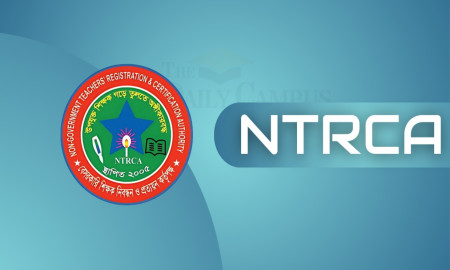DUCSU Election
Voters Demand Guestroom-Free, Gono Room-Free Campus

As the Dhaka University Central Students’ Union (DUCSU) election approaches on September 9, a festive atmosphere has gripped the campus. Candidates from various panels are campaigning door-to-door, presenting their manifestos to attract voters. While discussions swirl around the feasibility and impact of these pledges, the overwhelming demand from students is clear: a campus free from the notorious ‘gono room’ and ‘guestroom’ culture. Acknowledging this, most candidates have incorporated plans to address the accommodation crisis in their manifestos, though skepticism persists about their implementation.
The election has seen a range of panels announcing their agendas. The Chhatra Dal-backed panel has outlined a 10-point manifesto, the leftist student alliance ‘Pratirodh Porishod’ has proposed 18 points, the Bangladesh Islami Chhatra Shibir-supported ‘Oikkyaboddho Shikkharthi Jot’ panel has presented 36 points, the ‘Swatantra Shikkharthi Oikya’ panel has 11 points, the ‘Boishamyabirodhi Shikkharthi Songshad’ panel has 8 points, the ‘Sommonito Shikkharthi Songshad’ panel has 27 points, and the ‘DUCSU for Change, Vote for Change’ panel has 14 points. A common promise across these manifestos is the eradication of gono rooms and guestrooms, yet students remain apprehensive about whether these commitments will translate into action.
Students have long identified the accommodation crisis as a central issue. Many, hailing from remote areas, face severe challenges due to limited residential facilities. In the past, ruling party-affiliated student organizations exploited this vulnerability, creating ‘gono rooms’ where 30-50 or more students were cramped into single rooms. Access to even such inadequate facilities often required participation in political activities. Additionally, the infamous ‘guestrooms’ subjected students to physical and psychological abuse, including late-night interrogations and coercion into political rallies, creating a climate of fear and trauma.
Despite political shifts since August 5, the legacy of gono rooms and guestrooms remains a source of dread for students. They demand a campus environment conducive to living, dining, and studying. Yasmine Akter, a DU student, shared her experience with The Daily Campus, saying, “Leaving my family with dreams of studying here, I understand the pain of cramming dozens of students into a small room for classes and exams. I spent one-and-a-half years in a gono room. I’ve heard horrific stories from male friends about guestroom culture—enduring physical and mental torture, verbal abuse, and forced participation in political processions. The fear, trauma, and anger over gono rooms and guestrooms still linger. I don’t know how much these manifestos will be implemented, but we want a proper living and dining environment. If every student gets a legitimate seat from their first year, gono rooms and guestrooms won’t return.”
Asif Ahmed, a student at Amar Ekushey Hall, emphasized practical reforms, stating, “Panels are announcing grand manifestos, but do they understand DUCSU’s actual responsibilities? It shouldn’t just be a platform for ideological clashes; we need effective, student-friendly reforms. Priorities should include meeting basic needs in residential halls and advancing academic reforms, such as improving curricula, enhancing departmental quality, and creating opportunities for modern technological skills.”
Sourav Ahmed, from Haji Muhammad Mohsin Hall, added, “We must acknowledge that the university’s ongoing crises won’t vanish overnight. But basic issues like resolving the accommodation crisis, ensuring quality canteens, creating a safe environment for female students, allowing non-residential female students access to halls, and opening all central library facilities to students can and should be addressed swiftly. These are my primary expectations as a voter.”
Mohammad Sajib, a student at Kabi Jasimuddin Hall, urged, “I want a campus free from politics and the gono room-guestroom culture. As a student, I expect DUCSU representatives to fulfill our essential rights. While their manifestos may exceed DUCSU’s authority per its constitution, elected representatives can pressure the administration to secure these rights.”
Riaz Ullah, from Ekattor Hall, stressed the importance of sustained efforts, saying, “The promise to eliminate gono rooms and guestrooms is crucial, but no one can guarantee its longevity. My main expectation is to transform the campus into a hub for academics, science, literature, and culture, ending all forms of political exploitation and ensuring regular DUCSU elections.”
Anika Tasnim, another student, told The Daily Campus, “Many DU students come from rural areas, and the biggest challenge is the lack of accommodation. Ensuring adequate and healthy housing from the first year can gradually improve academic quality, foster a healthy political culture, and create a safe campus.”
As the DUCSU election draws near, students hope their elected representatives will prioritize tangible solutions to these longstanding issues, turning promises into reality for a truly student-centric campus.








